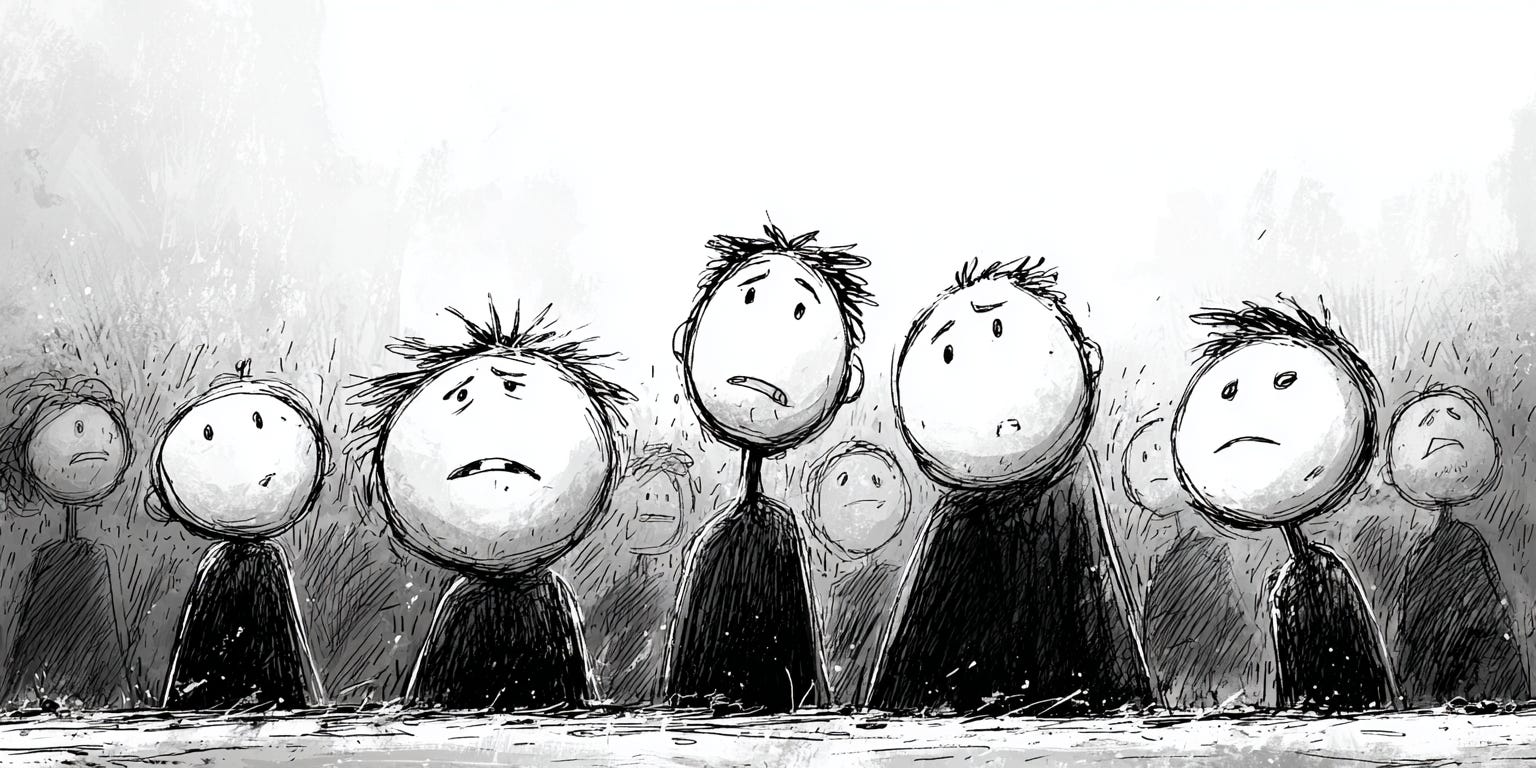ESSAYS
Jun 22, 2025
The Pandemic of Comparison
"A modern cycle of dissatisfaction that devalues what we have"

We live in an age where abstract concepts such as status, prestige, success, and even happiness often gain meaning only when compared to what others possess. At the root of this lies the human mind’s tendency to measure itself against others. The “social comparison theory” proposed by psychologist Leon Festinger in the 1950s suggests that individuals use others as a reference point to evaluate themselves. In this sense, comparison is a tool for orientation and positioning.
Today, social media has become both the stage and the accelerator of comparison. As we look at carefully selected moments from others’ lives, we focus on our own shortcomings—or even create ones that don’t exist. Could it be that the impulse to compare has become the main driving force shaping the society and culture we live in today? To answer this, let’s take a brief look at the history of comparison.
A Brief History of Comparison
In primitive communities, an individual’s hunting skills, instincts, or ability to learn from other groups not only increased their own chances of survival but also contributed to the development of the community. At that time, comparison was a natural feedback mechanism that helped individuals recognize what they needed. In its origin, comparison was an evolutionary advantage.
However, with the transition to settled life, this mechanism changed form. With the Agricultural Revolution came the concept of property, and comparison began to serve social hierarchies. Differences between kings, nobles, and peasants became more defined through comparisons based on property, power, and titles. Comparison no longer fostered development—it began to create separation.
With the Industrial Revolution, urbanization, mass production, and consumer culture again shifted the direction of comparison. Individuals began to demonstrate their success not through their abilities, but through the products they owned. The advertising industry manipulated people’s comparison instinct, pushing them to desire certain lifestyles. Comparison turned into a system where desires were whispered from the outside.
Today, social media is the latest link in this evolution. Comparison has become global, turning into a showcase competition among filtered “perfect” lives. People fall into the trap of comparing the natural flow of their own lives with the carefully selected, glamorous moments presented by others.

From Catalyst of Growth to Source of Dissatisfaction
So how did comparison, a tool once beneficial for our species’ development, turn into a cancer poisoning modern society at its roots?
The answer, it seems, lies in the shift of comparison’s purpose. When comparison was tied to real needs, like survival skills or more effective methods, it served as a trigger for individual and collective progress. But today, it is caught in the dangerous intersection between our deep-seated fear of inadequacy and the illusion constantly offered by the outside world: that there is always something “better” to have. Even when we already possess something “good enough,” this unnecessary drive for improvement, fueled by comparison, leads us into an endless cycle of dissatisfaction.
In our time, comparison has created uniform individuals and societies. Over time, it has turned from a reference point for growth into a source of depletion. Once seen as a guide for development, comparison has now become a toxic behavior in which people measure their self-worth against the artificial shine of others.
True success and happiness are not determined by what others have, but by how peaceful and fulfilled we feel within ourselves. In a society infected by the comparison pandemic, I can’t claim that we are immune, but at the very least, awareness can reduce the severity of the disease.
If what we compare ourselves to is already enough to make us feel content, then comparison is unnecessary.
But if comparison brings us closer to the person we dream of becoming, then it can still be a powerful catalyst for growth. The issue isn’t the existence of comparison, it’s the purpose it serves.
Most of the time, we make decisions unconsciously, and we are influenced without realizing it. That’s why knowing what we decide and why we decide it allows comparison to serve us, rather than control us.
To avoid becoming a snake that devours its own tail, I believe the antidote lies in awareness. The real question is no longer “how much do we have?” but rather, “how much of it do we truly need?” In that sense, awareness might just be the compass to guide us out.

